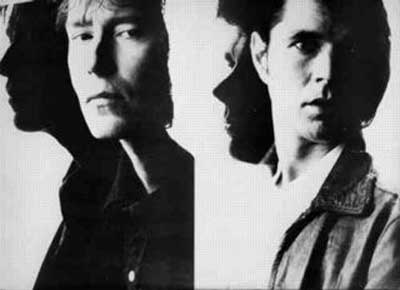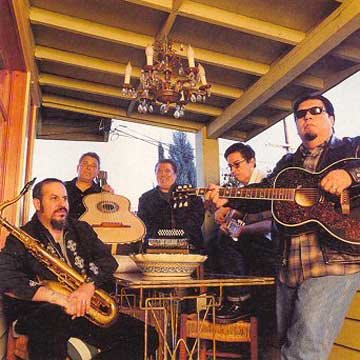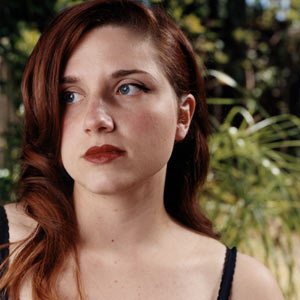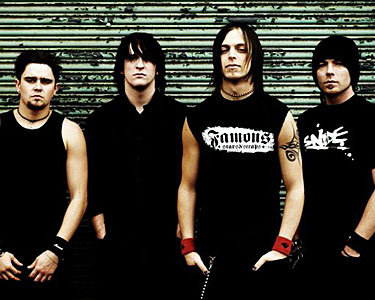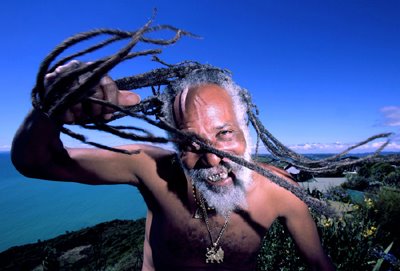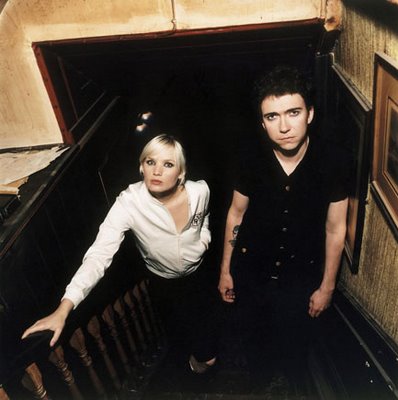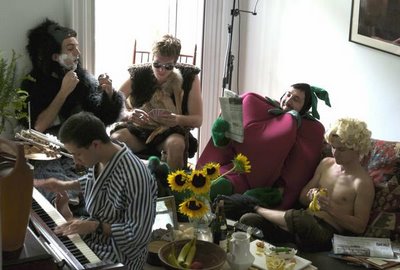
With their follow up to 2004’s critically acclaimed record Bows And Arrows, New York 5 piece The Walkmen seem to have thrown caution to the wind and lightened up with their latest release A Hundred Miles Off. Just a little bit anyway.
“As we got going on this record, we started heading for something more laid back and less intense.” States gravelly Vocalist Hamilton Leithauser “ I mean, we tried everything but it was more fun to work on things that were more…lazier.”
Caught midway through washing dishes, Leithauser elaborates on the direction of the new album. “We spend our entire lives driving around so maybe that came through in the music. I think that maybe we’re becoming really boring cause all we can do know is tell stories about being in a car but then again there’s some funny shit that happens when your stuck in on the road.”
As success spread from the release of Bows and Arrows, which included stints on shiny teen phenomenon The OC as well as Late Night with Conan O’Brien, the band found themselves on the road longer than expected.
“We scheduled these two tours and then thought that we’d do the US and England then be done but before we knew it one thing got scheduled after another and 2 years went by. We’ve been to Japan a couple of times. We’ve been to Brazil. They didn’t know what to make of us. We played this festival that was all Brazilian Reggae and stuff and we got up there and slammed out some Rock. It was a little weird for them but we had a great time.
They had this illustration of us that someone had done of us in beach towels and we all look like 5-year-old boys. It was billboard size and plastered everywhere but it was awesome”
Being global jetsetters has also given Hamilton the chance to exercise his linguistic skills.
“The first time we went to Japan it was so weird cause we had no idea where we were and no one knew who we were and so our shows felt strange but overall it was fun. We didn’t even know how many shows we were gonna play when we got over there. A guy would just take us to venues and we’d play on demand. The second time the same guy took us around but this time round there were a few people who knew who we were so the whole thing felt like it made sense I guess. It was funny cause I’d studied Japanese all throughout High School and I went over there and tried to speak on stage and came to realize that I couldn’t say a fucking thing. I’d completely forgotten all of it. Come to think of it, in six years of studying I couldn’t understand what anyone was saying ever.”
Not content with being simply a recording and touring Rock Band, the boys are collectively writing a novel entitled John’s Journey which may just place them in a league of their own.
“We’re totally serious about it but we’ve only written about 50 pages in two years. I think it’s just going to be a really long time before it comes out…seven years minimum. It’s something we do when we’re really bored in the van. We pass it around and everyone types. Theres no rules, you can do what you want. Actually the only rule is that there’s no editing. We’re trying to go for the 700 page novel but until it’s done people think we’re full of shit.”
To add to the bands mysteriously diverse endeavors, they have recorded a track-by-track cover album of the Harry Nilsson Classic Pussycats for an upcoming CD/DVD release.
“I guess that Pussycats was just a favourite of the band as a whole. We’d play tracks during rehearsals so we ended up knowing them really well and at the end of recording A Hundred Miles Off we decided to record some of them which eventually led to all of them. It was a quick session and it’s not something that’ll make us rich but we had a blast doing it”
With a tour Down Under slated for February, The Walkmen are far from easing off their adventures on the road and if it produces tracks like the ones off A Hundred Miles Off, Then it’s something to be thankful for.



